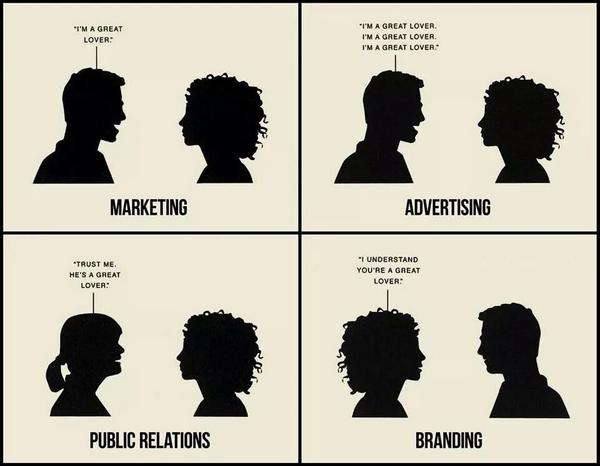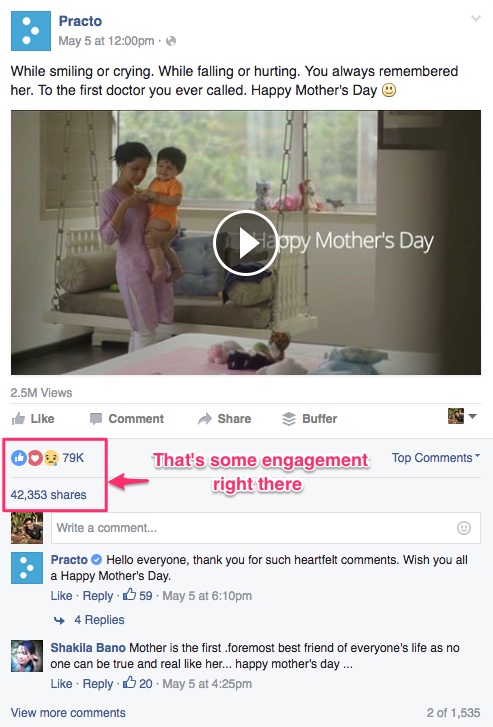As humans, we consume content in a specific way. We engage with content (online and offline) which adds value to our lives. Value doesn’t only mean improving the quality of lives. Making us think, moving us, making us feel something… it’s all value. We lap up content that makes makes us feel something. Then what happens when we switch to the other side of the fence? When we, as brands, become creators of content?
Here’s what I think. Most brands fail to create ripples on social media because they refuse to understand the psychology of a platform. For them, it is not about whether their target audience is present on a specific social media platform. Neither is it about why people are present there. For them, social media is a platform for distribution, rather than engagement. It’s about 3 entities - “I, Me, Myself.” But for humans, social media is the opposite. It’s about others.
During the Chennai flood, people used Twitter brilliantly to help those in need. The HVK Forum on Facebook is a terrific example of people creating value for each other real time. The founders of the forum also use WhatsApp effectively to offer real time assistance and guidance to travelers. Yes, these and many more, are examples of authentic, value-creating conversations.
Brands, on the other hand, solely try to sell, or create ‘brand awareness’. Great! How’s that working out for them? I’ll tell you. People scroll past their status updates in hyper speed to hit Like on photos of their friend’s newborn baby girl. Research by the Proxima Group states that $38 billion of worldwide marketing budgets are wasted on poor digital marketing. And we chastise Facebook for being a greedy capitalist. Isn’t it time that brands stepped back and reviewed their presence?
The chance to make a memory is the essence of brand marketing. - Steve Jobs.
But instead of making memories, we focus on irrelevant numbers like number of posts, impressions and reach. We often witness dismal returns on investment from campaigns. Low engagement, no sales, maybe a hashtag trended for thirty five seconds… but it doesn’t matter. We take solace in statements like "Brand awareness is an intangible element."
Over time, we are buried under mounds of data like children are with homework. A few companies look at this data, if at all, as mere numbers. But these numbers are insights into your audience’s behavior. They indicate what your audience likes, and doesn’t like.
Don’t misunderstand me. I’m not saying that brands must not sell on social media. They should, by all means. ‘Branding’ and ‘awareness’ are important. But trust is essential. Marketers must start with engagement. Want to hijack a special day? Don’t just go with a ‘Happy <insert event name>.’ Plan it, and put up something that makes your audience feel something. Practo does some amazing stuff on their social media channels. Their Mother’s Day tribute video on Facebook is one stellar example.
We must focus on conversations instead of status updates. Use tools like Hootsuite,Mention, and Google Alerts to track what people are saying about your category, not just about you. Then chime in with something useful. Be a friend who joins her buddies for a round of drinks, not a cocky casanova who approaches a woman whose attention everyone is vying for. Because like you, thousands of other brands are vying for your audience’s attention. Understand why people are present on a platform. And post stuff which touches a chord with them. Build for emotion, not pain points. If you address ‘pain-points’ on social media, you will talk features and benefits. But if you address emotion, you will lay the foundation for a beautiful relation with your audience.
Instead of brand awareness, let’s build trust. Let’s become a part of our audience’s circle rather than trying to make them a part of ours. Let's observe how we consume content as humans, and replicate the same when we create it. Let’s do stuff which makes our audience our spokespeople. When you truly understand this, you will have cracked the code of social media. No more will you depend on an agency to tell you what to do. Instead, you will tell them exactly what your audience wants, and demand strategies accordingly. Engagement, app downloads and installs, and sales, will eventually flow. It’s just a matter of time.
_____
About the author:
Vishal is the founder of Aryatra, a venture which helps individuals improve their productivity and live more fulfilled lives. He also is a digital marketing consultant helping businesses generate revenue from their online presence.





















Comments